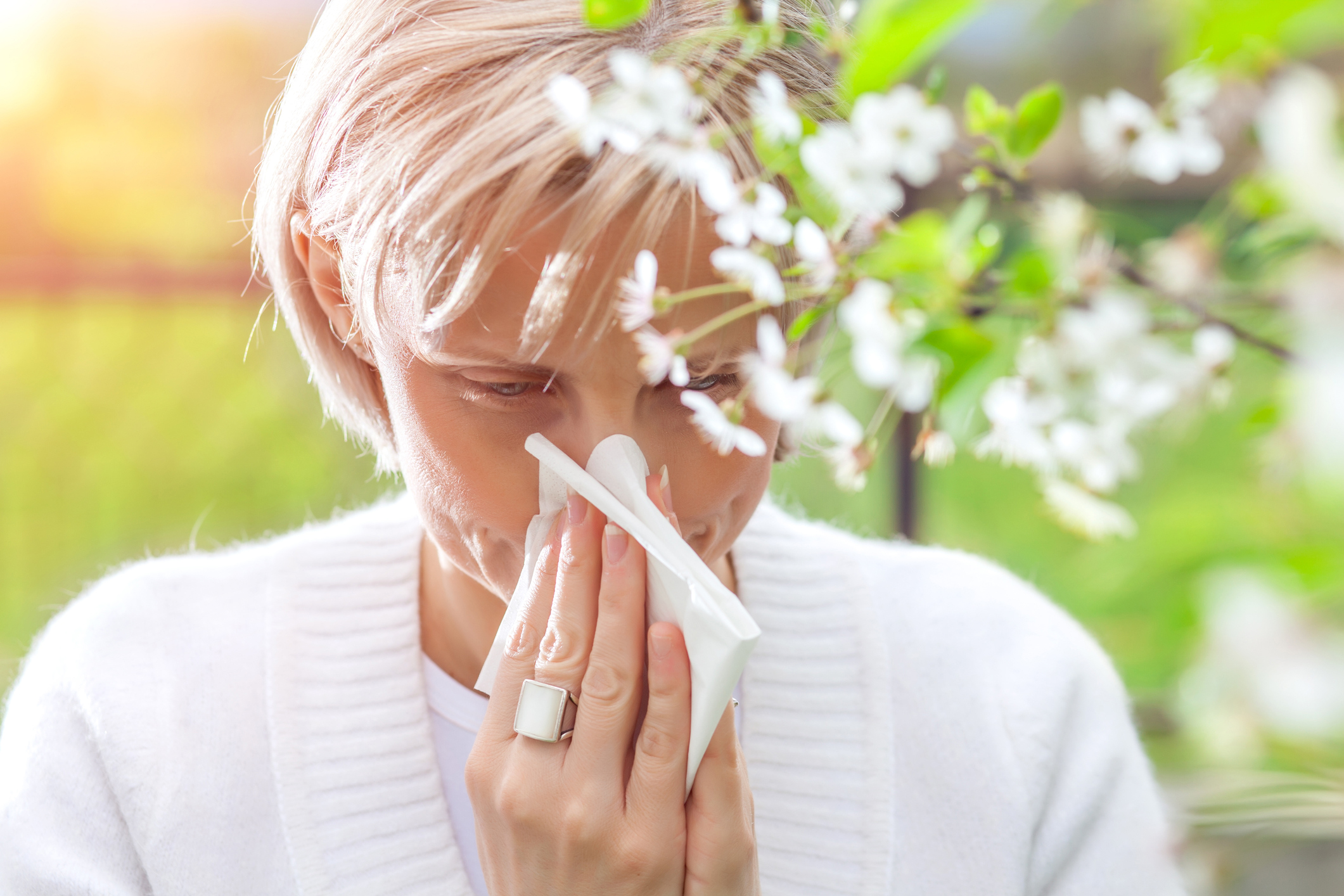Although the snow has barely melted, Dr. Todd Falcone, an ENT specialist at UConn Health, says allergy season has already arrived. He discussed the latest on allergy season this spring, and outlined what allergy sufferers can expect in the longer-term as the weather heats up.
Q. Is allergy season here yet?
A. The start of the pollen season was delayed due to the late snow storms, which I am sure was helpful for some. However, even though there are still signs of cold weather and snow outside in some locations, the start of spring allergy season is upon us. Pollen counts were up this week and noticeable to those who suffer from spring allergies.
Q. What is in the air exactly, and how do these new signs of spring physically trigger suffering?
A. Currently we are in tree season, so trees and pollen are the most prominent allergens affecting patients now. It’s a little early for grasses, but those are the allergens that are worse in the summer. For patients with year-round symptoms, they may have several allergies or may be allergic to dust, which is present throughout the year regardless of seasonal change.
Q. When will allergy season be in full swing?
A. This depends on what the person is allergic to. For those with tree and pollen allergies, the season is starting now and should peak in the next couple of weeks. Whenever the grasses come out in the next month or two, the summer allergens will be in the air as well. Pollen counts are highest during the mid-day hours on warm, breezy days. During that time of day, patients with allergies to pollen and trees should spend their time more inside than outside if possible.
Q. What are the seasonal allergy symptoms?
A. Common allergy symptoms include sneezing, nasal congestion, and an itchy, runny nose, as well as itchy, watery eyes.
Q. Can a spring cold and cough actually be seasonal allergies?
A. Absolutely. For many people, the change of season may bring with it a viral upper respiratory infection also known as the common cold, but for some people this may just represent their allergy symptoms. The common cold may present with similar symptoms as those seen with allergies, but patients typically recover within a week to 10 days, whereas allergy symptoms may last several months if not treated.
Q. How are allergies confirmed for sufferers and commonly treated?
A. Allergies are diagnosed by history. If you develop sneezing and itchy, watery eyes and nose during the change of seasons, then you most likely have seasonal allergies or what is referred to as allergic rhinitis. There are ways to confirm this through allergy testing, which can be done through routine blood work or through more in-depth skin testing in an allergist’s office. The first line treatment is avoidance.
Q. What do you recommend to the young and the old to best make it through allergy season?
A. Try to identify times of year or certain environmental exposures that trigger your symptoms, and employ avoidance measures. If this is not effective then you may benefit from allergy medications, but I would recommend discussing this with your physician first. Specifically for the spring time allergies like trees and pollen, avoiding the outdoors during high pollen counts is important. You can check the pollen counts in your area by typing in your zip code on sites like www.pollen.com. Changing your clothes and taking off your shoes when you get home and showering before bed are also helpful to remove any adherent pollen from your body. Flushing your nose out with saline either from a pre-filled nasal saline bottle available at any drug store or from a Neti Pot can also rid your nose of the inhaled allergens that are triggering the allergic response. In terms of medicines, the first line therapies are oral antihistamines like zyrtec, claritin, or allegra, as well as a topical nasal steroid spray like flonase, nasonex, and rhinocort. These are safe medicines to use on a daily basis when one suffers from allergies. When these medicines no longer work, patients typically look for a longer term but more definitive solution, such as allergy immunotherapy, also known as allergy shots. Patients whose symptoms do not respond to these over-the-counter medicines should be further evaluated by a physician to assess for factors that may make their symptoms worse.
To learn more about ENT services at UConn Health visit this website.



